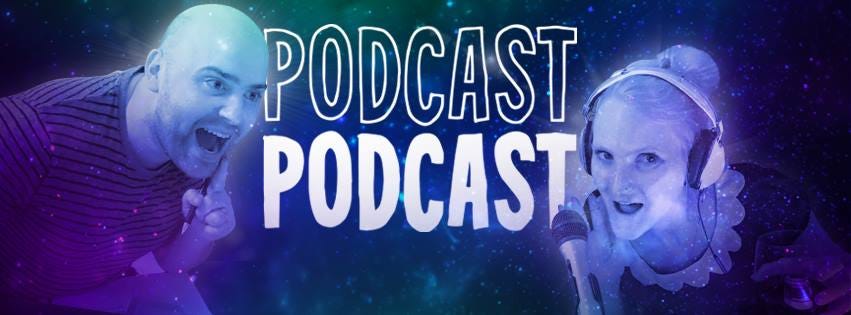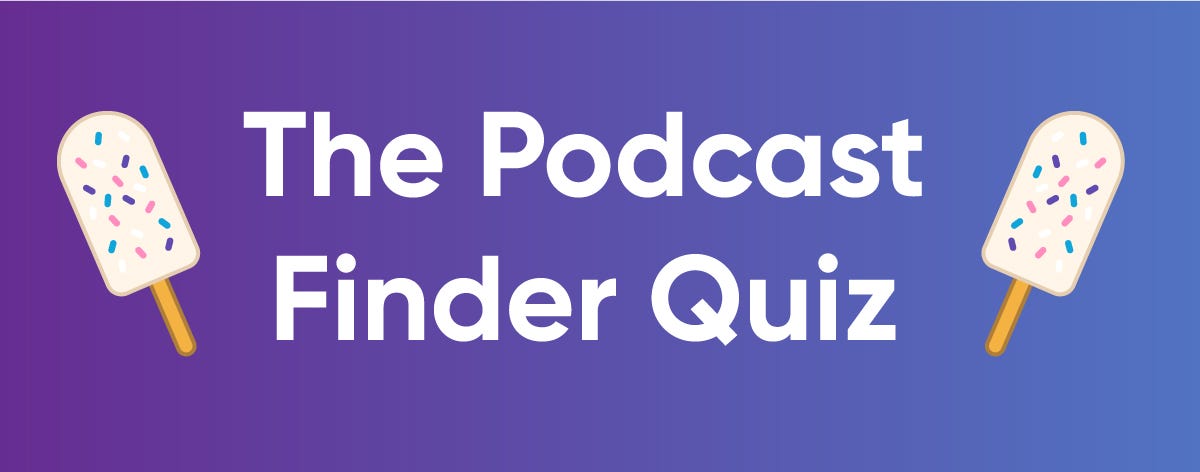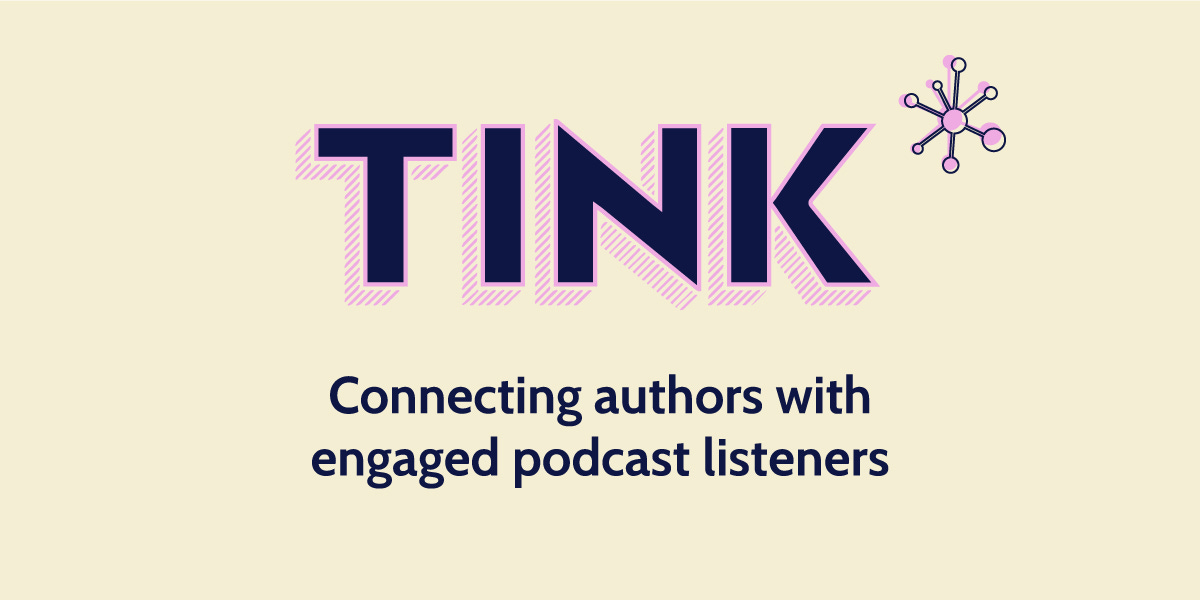Podcast The Newsletter
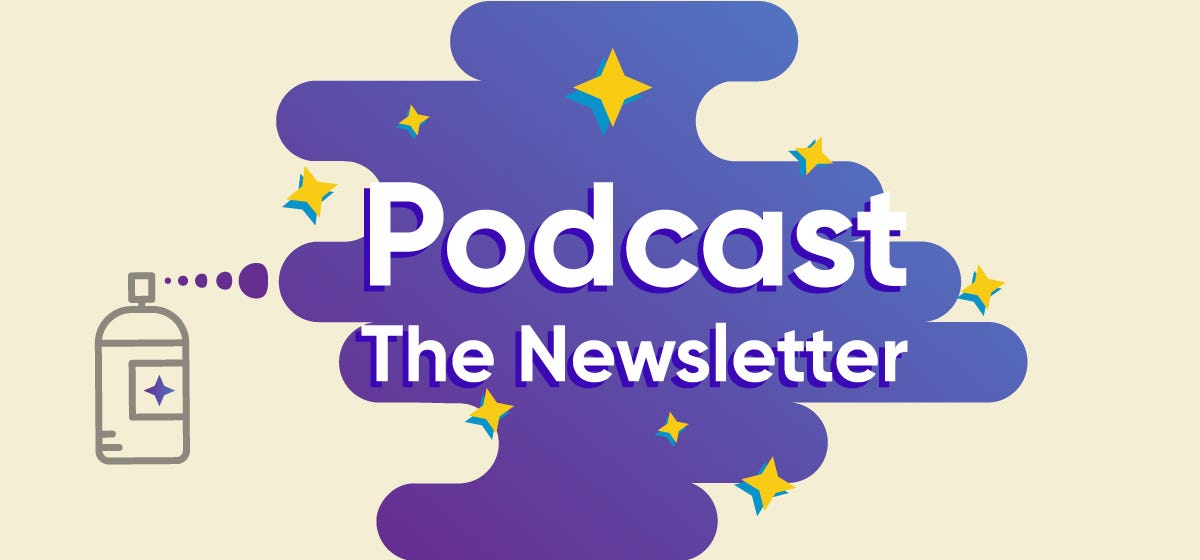
Bonjour.
Zach Kahn recently tweeted about Spotify's new playlist features, and my first thought was, this changes everything.
I was working at WaitWhat when we ran a Masters of Scale interview with Spotify's Daniel Ek. On it he talked about how generating playlists was one of the things that made Spotify soar. Spotify acquired a company called Tunigo that hand crafted playlists for different occasions. The lists were great, which made people love and trust Spotify. And the data Spotify got from monitoring what people listened to was powerful information and allowed them to grow in all the right ways.
I love Spotify playlists. I look forward to my new Discover Weekly list every Monday. It's always so spot-on. My husband, mom, and dad have even created our own family playlist called "Song of the Day." Every day we text each other on a special Song of the Day thread a song—a new or old one, something in the zeitgeist, something we're obsessed with, something unexpected—the songs in the thread get added to our Spotify playlist. We start a new playlist each year, so every year we have a very diverse list of songs we've enjoyed. I love it because I discover new things (Justin finds hip hop I love, my mom shares pop-punk and old Italian songs, my dad listens to literally everything) and the playlist also connects us on a daily basis. It is safe to say that I live in Spotify Playlists, that they are how I discover new music and listen to my favorite songs. It also means I listen to my songs on Spotify exclusively. Right now, I consume almost all of my podcasts on Stitcher. But if I get addicted to Spotify playlists, that will change.
It will be so interesting to see what Spotify playlists do for podcasts. Right now, there are lists of episode lists and show lists, and even lists with a mix of both. So fans can curate "10 best Comedy Bang! Bang! episodes" or "Episodes with Laci Mosley" or whatever. We haven't yet mastered podcast discoverability, and if podcast playlists catch on like they did for music, this could increase listening a zillionfold approximately. I created a podcast playlist of my favorite podcast episodes starring Laci Mosley. Check it out!
xoxo lp
ps If you are pleased with Podcast The Newsletter, please spread the word!
...And now for some chit-chat with someone you should know and love as I do!
Anna Anna Anna Anna Hossnieh
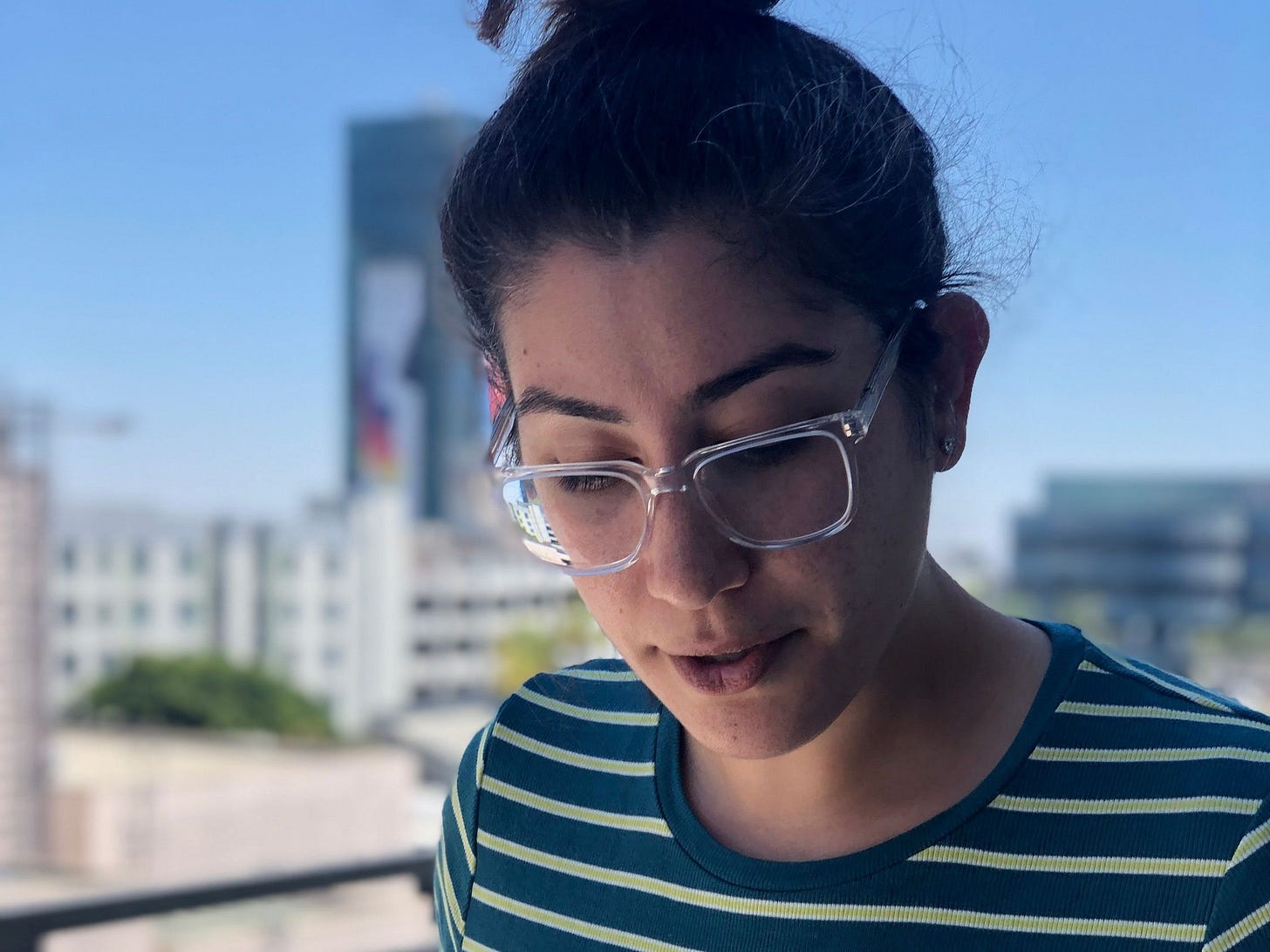
Anna Hossnieh is comedy producer at iHeartRadio (The Daily Zeitgeist, Creature Feature, Couples Therapy, and The Ron Burgundy Podcast) and host of Ethnically Ambiguous. Follow her on Twitter, and follow Ethnically Ambiguous on Twitter here.
Describe your show in a tweet-length description.
Ethnically Ambiguous is a podcast about being a person of color in America from two friends: one Syrian & one Iranian (Shereen Younes and Anna Hossnieh).
What do you hope the show does for people?
I hope the show brings comfort to people who experienced the same upbringing as us. Also we want to inform people about what is going in the Middle East especially since people have such a daunting view of that region. I think normalizing Middle Eastern culture and Islam is a big part of the show. We are all just people doing our best to survive in this world!
Do you over prep, under prep, or perfect prep for your episodes?
I would say I under prep cause my job as a podcast producer tends to suck up my life. I have to compartmentalize a lot of my work to not lose my mind from the stress. I have always been a crammer cause I feel I retain more info if I compile and study my work right before I go into a podcast recording. I like to be in the zone and not be distracted with other little things throughout my day or week. Also sometimes I feel better just being free and not so scripted on the show. I feel more relaxed when I can just freestyle and joke around and not feel rushed to put out concise, direct information. That sounds crazy but I like to be silly and not be so strict in my show style. Also that is what editing is for! (our poor editor Dan - sorry Dan!!)
What's it like working on The Daily Zeitgeist every day?
Daily Zeitgeist is a beast to work on. It's a commitment like no other. Every morning we come in and research stories, compile a document with the show outline, and then record it by noon. After that I compile all the footnotes and create the podcast page. On top of that I book all the guests and keep the schedule straight for everyone. It can be hard not to get jaded and exhausted. Jack and Miles do a great job of keeping it fun but there are definitely days where my eyes are rolling to the back of my head cause I am just so brain dead. Taking days off is key. I will skip a show here or there to clear my head. It's a wonderful show to work on and I feel so informed and on top of the news, though. It helps me develop and record Ethnically Ambiguous episodes. So I guess, overall, it's good, but I can't wait till we make it the weekly zeitgeist, one day.
Give us a podcast recommendation.
Last Podcast On The Left till the day I die! Also Everything Is Alive is amazing. They interview inanimate objects and it is hilarious.
💎BTW:💎
🎙️I was out of the country, not listening to podcasts for a few days, and the morning I returned I woke up at 4:30 because I was so excited to catch up on my list. (Also maybe because I was jet lagged.) Does anyone know a good therapist?
🎙️Podcast DORKS will love Inside Podcasting, where Skye Pillsbury interviews podcasters about their podcasts. I am more in awe of podcasters than I am movie stars or people like Mother Teresa (who, I mean, come on, was a little too over the top sometimes) so this is my new favorite thing. LOVED the episode with Everything Is Alive's Ian Chillag. (A show Anna mentioned above.)
🎙️Podcast dorks will also enjoy the New Media, Old Story episode of The Secret History of the Future. It talks about how radio was once the wild west, like podcasting is today, but eventually was tamed by corporate interests in the 1920s. Then the process was repeated with blogging. So what will happen to podcasting? If we listen to history we can pretty much guess. Let's enjoy this wild west time while we still have it. (This episode includes a really interesting anecdote about one thing that harmed radio: the sinking of The Titanic!)
🎙️I recently turned on a bunch of We Love Trash (Patreon...please become a Patreon) episodes for my husband, and before the first one was five minutes in he was hooked. Talking about the trash that they love, Betsy Sodaro and Mano Agapion are hilarious, but the show is really about their friendship, which as a listener, I want to be a part of. And listening to them together taps into that idea that —eavesdropping on an intimate conversation you otherwise wouldn't have been invited to. The episodes are purely enjoyable and will make you laugh out loud.
🎙️I have enjoyed Incel, and have also taken issue with parts of it. (I often wished the host, Naama Kates, would push back against her misogynist guests, while at the same time I appreciate that she will step back and let her guests talk openly.) Still, it was surprising to hear Naama read some of the criticism she's received via email and Apple Podcasts reviews. She dedicated an entire episode to it. Many of the comments seem to be that she isn't an expert, she sounds like a child, she has vocal fry, puts out shows with "non-existent" editing and yes...that Naama didn't push back against her guests. In response, Naama got defensive. I'm sure I would have, too. She argues that this is her podcast, and she did it her way, and nobody else was doing it, so if you don't want to listen to it, then go listen to something else. My opinion has been, while listening, that I was intrigued to hear the voices of her incel guests in any format. I felt grateful for the unusual content and the access it gave me. The point of a good podcast doesn't have to be the expert editing. It can be an interesting idea creatively investigated, which I think this show is. It seems out of character for Naama to open up and be so vulnerable, but I'm glad she did it. I think this is a good episode for podcasters to hear, and I wish more shows did this kind of feedback-themed show.
🎙️Ana Marie Cox interviewed Rachel Monroe on With Friends Like These about Rachel's book, Savage Appetites, which is about the people (mostly white women) who are consumed by true-crime. It's such an interesting conversation to be having right now, since true-crime podcasts are in the spotlight for basically ripping content from other writers for their content. How will these lawsuits change true crime shows? How will do we properly credit people for podcast content? Will the format have to change? How long will their reign of terror last? Ana and Rachel talked about how we love true-crime, not *always* because of the crime, but because the stories on true-crime podcasts are usually almost mythical stories about ourselves, much like stories from the Bible.
🎙️Right before I listened to that episode, I was listening to The King James Virgin, a show that gives Bible stories this sort of true crime story treatment. Except, hosts Alan and Adam aren't ripping off an author (unless the author is... "god?") I don't enjoy when podcasters seem to be reading a true-crime story Wikipedia page, but I find it interesting to hear Bible stories retold in this way. The first episode covers one of my favorite Bible stories, Jonah and the whale. Most people think this story is about a guy getting eaten by a whale, but that's only the first half of the story. The rest is much stranger. Listen to that episode here.
🎙️, I talked about The Memory Place and the children's book that it inspired, Mary Wears What She Wants. The Memory Place's Nate DiMeo was recently on Radiolab to talk about the show and why a history podcast is able to capture our hearts. In the paid version of Hot Pod, Nick Quah interviewed DiMeo, who talked about how the show has opened so many doors for him. He was offered a residency at The Met, a television writing gig, live performances abroad, book publishing in Brazil, and a feature film-in-progress based on a Memory Palace episode. DiMeo compared the show's "peculiar" cult status to The Velvet Underground, "the band that other bands listened to borrowed from."
🎙️Inbox is back! The show that asks guests to share "the buried treasure of embarrassment of their inbox" is funny and fascinating. It's a bold move to go on this show. Not everyone would be willing to do it. (Would you?) Episode one is with Blank Check's Griffin Newman.
🎙️I can't stop thinking about the Fake The Nation episode I listened to about how in school we teach girls to be competent and boys to be confident. I listened to this right after I listened to the Soupçon Of Hope episode of The Waves, where Christina, Nichole, and Marcia talked about how people are wary to vote for Elizabeth Warren not because she isn't competent (most people agree she is) but because she's too academic or dorky or unlikeable or etc. But they will vote for Joe Biden, who was told by Obama he "doesn't have to do this, Joe" and whose own wife said, "your candidate might be better on, I don’t know, healthcare than Joe is, but you’ve got to look at who’s going to win this election." That man has confidence! This is all before I read the history of the conman in Jia Tolentino's Trick Mirror, where she writes about how the conman got his name for being a "confident man." Reader, I think I'm currently in some self-confirming bubble, but it's really nice there so I think I'll stay!
🎙️Is anyone on Pod Chaser? I set up a profile, don't see anyone I know there (I haven't looked very hard!) and I'm wondering if this is going to catch on. Or, if (like Litsy a few years ago) I'm going to spend time in an app that is soon to be irrelevant, before it has had the chance to reach relevancy. (Oh wait! It's not an app, only desktop right now, which makes no sense to me.)
🎙️I dipped into Shweet! A Ladies Guide to Bro Culture, by More Banana. On it, transgender female comedian Jeena Bloom brings the loudest, bro-iest pieces of pop culture from her old life to her favorite female comics. I listened to her episode on The Joe Rogan Experience, where she talks to Rogan first-timer, actress Xenia LeBlanc and Rogan apologist, comic/writer Sarah Afkami. At one point, she plays a clip of Joe and Ben Shapiro discussing transgender people—which must have been a blast for Jeena. Yikes. Love the idea, here, and it's very well done. It feels fun and light-hearted, yet important and challenging.
🎙️On Keep It!, Ira, Louis, and guest Shar Jossell had a great conversation about Dave Chappelle's new comedy special. As someone who once idolized Chappelle, I have had a hard time putting to words how this special made me feel. And I appreciated this conversation between two gay men (one of them black) and a black trans woman. There's also a great interview with Randall Park!
🎙️I love Slate's Trumpcast, but sometimes I'm almost nervous to listen to it because it always exhausts me. The episode Humor, Trump, and The Patriarchy was silly and fun. Comedian John Fugelsang joins host Virginia Heffernan (John's mom was a nun and his dad a priest when they fell in love, and he grew up Catholic so he has an interesting perspective,) and they challenge Christian Trump supporters to try to come up with a single issue Trump has campaigned for that aligns with something that Jesus actually said.
🎙️Anna Hossnieh (HEARD OF HER?) did a Reddit AMA the other day and anyone in the Zeitgang will l-o-o-o-v-e this shit.
💎If you binge one thing this week...💎

I have complained that true-crime shows are often just regular people reading off Wikipedia pages of crimes. (Or worse, , intrusive amateur physical investigations that are detrimental to an entire community.) But reader, I have found a true-crime podcast that breaks the mold!
The Fall Line is a well-researched, deep-dive investigative true-crime podcast that looks at cases in the Southeast, and more specifically cases that involve marginalized groups and didn't get sufficient media coverage when they initially occurred. It isn't trying to quench our thirst for gore, it's trying to bring important, under-reported cases to the surface. It's a true-crime podcast you can actually feel good listening to. It's actually trying to do something. I love it. Consider the true-crime bar raised.
I talked to host and co-creator Laurah Norton about how she got the idea and what she wants for the show:
Brooke (Hargrove) and I began The Fall Line to investigate the disappearance of the Millbrook twins, who disappeared in Augusta, GA in 1990. Danette and Jeanette were just 15 years old when they vanished on a walk home from a local convenience store. Their case was improperly closed by an apathetic officer in 1991, and was not reopened until 2013. I first heard about the case on a podcast called The Trail Went Cold, and was immediately struck by the absolute lack of media coverage. Outside of TTWC’s episode and an episode on a podcast called Thin Air, there were exactly three articles on the case—all from 2013, when it was reopened, and all covering the same information.
I decided to use the girls’ disappearance/lack of coverage as an example in a class I was teaching at the time. I’m an English professor, and my freshmen were learning about cause/effect arguments in a themed “Unresolved Mysteries” composition course. I had them examine the lack of coverage as an “effect” and asked them to determine the cause(s)—which they quickly identified as the factors of what we call Missing White Woman Syndrome. The case continued to bother me, though, and I eventually decided that I might be able to contribute to building a knowledge base and increasing awareness of the disappearance—basically, putting academic research skills and creative-writing training to good use. I asked Brooke, a licensed therapist who specialized in grief and trauma, if she would participate in creating a podcast. I wanted to respectfully involve the family of the twins, who, based on the few media reports there were, felt very unheard. I thought that Brooke would be better equipped to do so in a respectful way. We spent a month or so researching Augusta, and what was happening there in 1990, and the reached out to the family. They were all for it, and the project began.
As we worked, we discovered that there were major errors in the incident report—wrong streets, wrong names, etc. — and that most of the people who had seen the girls that day had never been questioned. Eventually, we developed several leads in the case. Many of those were discussed on our show, but some were held back and handed over to law enforcement—we felt they were strong enough to warrant careful action on our parts. We did not and do not want to negatively affect a possible criminal investigation. We are still active in the twins’ case, and our listeners raised a 10,000 dollar reward and have—for over a year—funded a missing-persons billboard in Augusta.
We have continued our work on other cases over five seasons. These included missing Brunswick, GA siblings Monica and Michael Bennett, the story of seven babies kidnapped from Grady Hospital (two are still missing today), a season focused on unsolved murders and Doe cases, and now, a season covering the disappearance of Shy’kemmia Pate. She vanished from her own street in Unadilla, GA n 1998. We began this project in 2017. We had a lot of passion and very little idea what we are doing. Over two years, we’ve expanded our team to include content advisors (people with lived experience who can review scripts and make sure we’re using the right language, expressing ourselves clearly, and not missing issues due to cultural blind spots), research assistants who pull articles/make timelines/request FOIAs, and a wonderful producer.
We joined Exactly Right Media’s podcast network in 2018, and are thrilled to be there. It’s an extremely warm and supportive environment. We have expanded beyond Georgia to cover the Southeast, but continue to focus on communities whose cases are under-covered and under-investigated due to issues like race, class, gender identity, sexual orientation, home insecurity, disability, religion, occupation, undocumented status, etc. We look for cases where there is little-to-know online knowledge, interest, and research available—we feel we can add value by increasing that knowledge and making listeners aware of the cases, and the issues inherent in them. An example would be our April 2019 coverage of the case of Elia Banderas, a housekeeper at a luxury hotel in Atlanta. She was murdered in the mid 1990s, and her case remains unsolved. When discussing her case, we highlighted the dangers faced by housekeepers, the harsh work conditions in many hotels, and the lack of universal safety systems—like personal alarms—that should be in place. We want our audience to think about the intersection of these kinds of issues.
